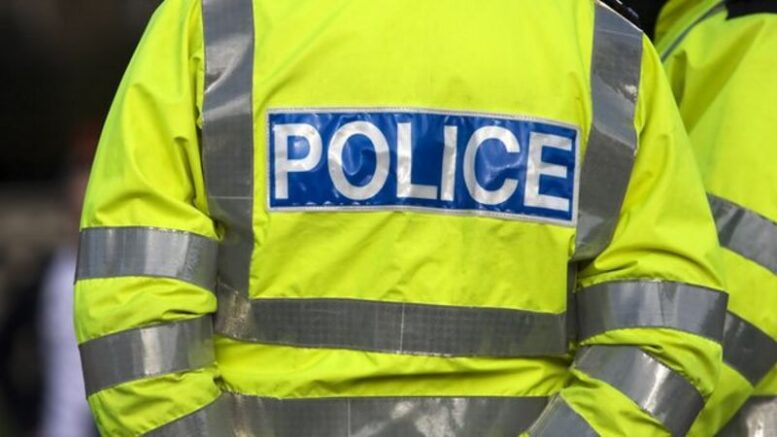The schoolchildren are back in school following half term in many places in the UK, the sun is out and ordinary people need to do the work that still keeps the country running, despite the way that the politics of the nation are so woefully mismanaged. Of course Britain would not be Britain today without the unwanted interventions of climate change protestors.
Just as people need to get to schools, workplaces, hospital appointments and to allow commercial drivers to fulfil delivery schedules, so out onto the streets come the upper and middle class climate protestors to screw up everyone’s day. These arrogant and self-entitled climate disaster cultists, who by the look of them have either never had to get to a place of work or who are living comfortably on public sector pensions, take delight in slow walking along the carriageways of major arterial roads, preventing ordinary people going about their lawful business. In some cases, as in an incident earlier this month on the Old Kent Road in South London, one of these clownish cultists decided that he and only he would decide whether a delayed motorist really needed to get to a hospital appointment as the car driver had claimed.
As some who has organised, attended and observed for the Press, a lot of demonstrations that were for or against various causes, I know that the police play or rather should play an important role in both facilitating protest but also ensuring that the protest doesn’t impinge on the rights of others. But this is not what is happening with protests by various eco-fascists and eco-communists. They are being given by the police an extraordinary wide remit to cause unnecessary disruption, cost and inconvenience. Some of this excessive leeway given to the eco-fascists and eco-communists is I believe class based.
It’s something that may be very clear to police officers dealing with the eco-lunatics that many of these eco-extremists are upper or upper middle class or give the impression that they are otherwise obviously moneyed. When I look at these climate demonstrators I see not downtrodden men becoming heroes by engaging in an effective and justifiable non-violent direct action campaign. Instead I see a group of campaigners having open and unrestricted disdain for ordinary humanity and our prospects. Rather than the heroes of the masses these eco-extremists are more like the spiritual heirs of the worst landlords during the time of the Highland Clearances. They don’t care that their prescriptions and their preferred policies would see ordinary people starve or freeze or succumb to despair, the cause for them is all. They are also the sort of people who are insulated from consequences. They are insulated from the fear of not getting to work and then not being able to feed their families that those outside of their group have. They fear no consequence of law because many of them have families with useful connections or the ability to get the best lawyers and I’m afraid justice, that money can buy. That class aspect of this eco-extremist movement would I believe stay a police officer’s hand when it comes to dealing with these fanatics who want everyone in the world, apart from them presumably, to live like stone age humans and suffer the disadvantages of such a condition.
The police are also hampered by legal judgements that favour the likes of Extinction Rebellion and its various offshoots. These judgements eco-extremist groups exploit to the maximum ability that they can and this is why Just Stop Oil and all the other Extinction Rebellion front groups are able to cause so much destruction and disruption. The sheer legal power that the wealthy individuals and donors that those who support eco-extremists have bought have severely hampered the police in tackling them, is in my view quite evident here.
The legal hindrance to the police clearing eco-extremists out of the King’s Highway and possible reticence, on class grounds, to intervene in the demonstrations is unfortunately giving the impression to some that the police are actively on the side of the eco-extremists. This impression gets cemented in the public’s mind when the police are continually filmed, on more than one separate occasion, arresting, manhandling or otherwise intimidating those members of the public who try to move these eco-extremists out of the highway themselves. The police might be legally correct in arresting those who are countering the eco-extremists on legal grounds, but it is terrible, terrible optics for the police. It makes them look complicit in the disruption and in agreement with the aims and objectives of the eco-extremists, even if this is not the case.
The actions of the police in relation to the eco-extremists is helping to stack up even more distrust in the police. In a way it’s similar to how distrust in the police grew after the Islamic Rape Gang scandal first blew up which exposed police forces doing nothing to interdict these gangs. Maybe the police did less than they could because the police wanted a quiet life with less rioting Muslims, which could have been the case had they intervened in a muscular way regarding these crimes or because individual officer’s hands were tied by a management culture of political correctness. However, whatever the reasoning behind police turning a blind eye to these abusers, the result of the police’s inaction regarding Islamic Rape Gangs was that the police lost the general public’s trust. Failing to deal, to the general public’s satisfaction with these eco-extremist political LARPers will, as with the fallout from the Islamic Rape Gangs, create an environment where the public trust the police even less than they do already.
This will not end well. I suspect that too much disruption by the eco-fascists and eco-communists coupled with a perceived lack of action by the police will prompt a safety in numbers approach by those opposed to the eco-fascists, who will engage the protestors in numbers rather than singly and maybe make it less likely that the pushback can be stopped by arresting one person in order to encourage the others to stay put and put up with the disruption.
Vigilantism, which could be an increasingly serious problem as more and more normal people find themselves, their rights and their security, sidelined by the police when the eco-extremists have appeared, is the sort of thing that rarely turns out well. It’s not the sort of thing that the police and criminal justice system should be encouraging but which is being encouraged by the police when they fail to look after the general public in situations where the general public have come into contact with the eco-extremists and their disruption. Not acting when eco-extremists of various sorts break the law isn’t doing a lot for the image of various police forces and I’m concerned that this is trust and support in the police that is being lost by the public and which will be very very difficult to get back. Every person delayed or inconvenienced by eco-lunatics who are seemingly being pandered to by the police, is one more ordinary person who might well give up on the police and see them as ‘not on their side’ something that would make the job of policing that bit more difficult.





Quite agree. Short answer to question is “yes”.
I believe that this is far more sinister than we realise
There is a deliberate move by various politicians, police chiefs, bureaucrats and activist judges to so outrage and alienate the public that we will finally snap. Then they will use it as an opportunity to turn the Peelian principle of policing by consent on its head to impose top down control like the European style thug gendarmeries that Peel warned against, on top of the creeping mass surveillance that is turning the UK into a tracked, fined, censored and restricted 15 minute Open Prison.
You read it here first.
I’ve heard that argument before but it’s just as likely that the problems we have with policing are based in the general politicisation of policing that started in the Blair years. Police now seem to be much more of an echo chamber than they used to be based on my experience of having journalistic contacts with police in the eighties and how they are now.